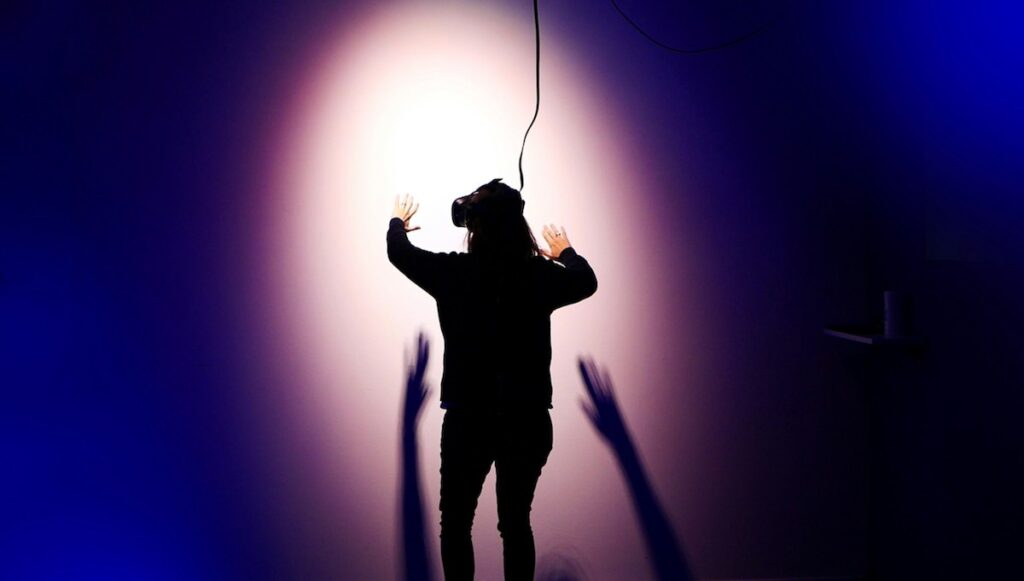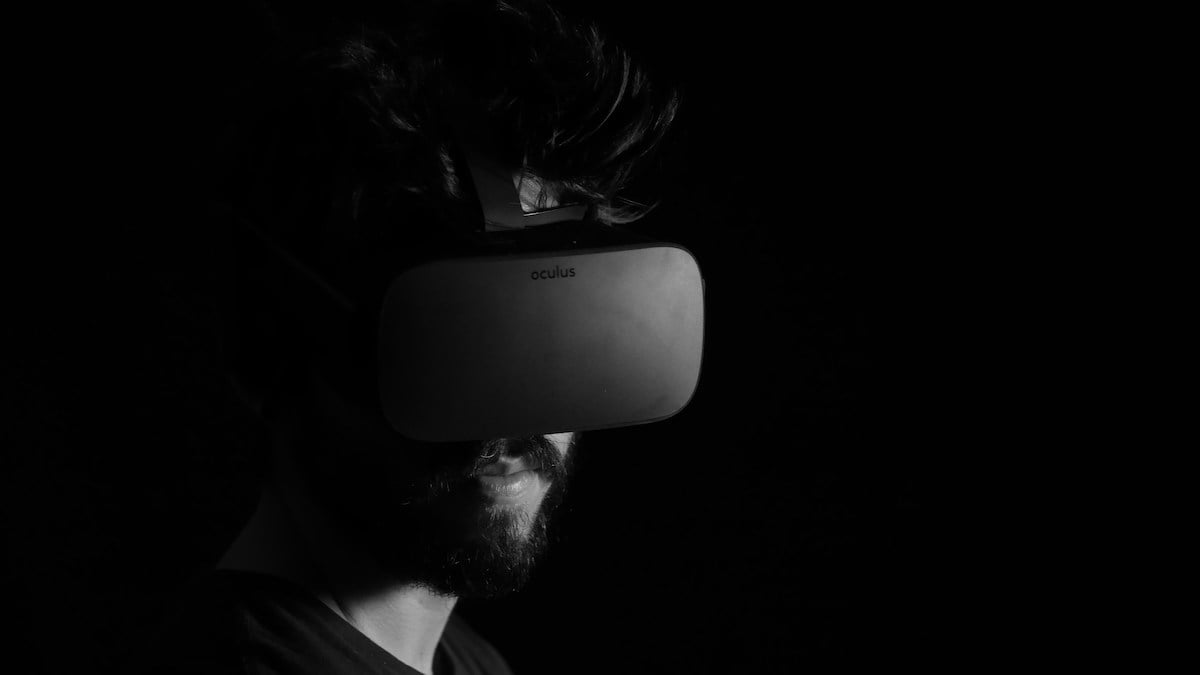A groundbreaking research project led by linguistic data expert Dr. Christopher Collins of the Ontario Institute of Technology aims to usher in a new era of interacting with digital spaces by enabling writing through hand gestures on cutting-edge devices.
Canada Research Chair in Linguistic Information Visualization at Ontario Tech, Dr. Collins is one of 17 Canadian academic leaders leading research to drive the innovation needed to build the metaverse, the next phase of social technology and successor to the mobile internet.
Funded by Meta Reality Labs Research, a variety of projects seek to build digital realms and immersive 3D experiences through advanced devices, fostering new creative, social and economic avenues.
Communication support
Dr. Collins’ project, powered by a Meta Research grant, is working to pioneer new technology that allows individuals to interact and write on a ‘virtual whiteboard’ within augmented and virtual reality environments. For example, when a whiteboard is invoked through a specific hand gesture, the user can write with a pen or finger.
Over the past two years since the project began, Dr. Collins has been exploring contextual computing and interaction to devise a system that can decipher a user’s intent based on contextual clues. For example hand gestures. Dr. Collins is also studying eye tracking to identify reading behavior and predict where additional information or support may be needed.

As discussions about the metaverse progress, curiosity about its practical application abounds. Conceived as an immersive 3D environment, the Metaverse offers new experiences that cannot be realized in the physical realm. The potential real-world applications are vast and early signs are already evident.
For example, in iGaming, where augmented reality and virtual reality have been used for many years, it is clear how the metaverse can interact with gaming environments such as live casinos. For example, in the city where Dr. Collins’ research is taking place, players can play live Ontario casino online games such as roulette and baccarat. Some of the most popular slot games on the site are from developers who have already explored AR and VR technologies to enhance their products. Examples include NetEnt’s Gonzo Quest VR 5-reel slot and Microgaming’s VR Roulette. The industry has already embraced key Web3 components such as blockchain through increased use of cryptocurrencies.
The global metaverse games market is expected to exceed $660 billion by the end of 2010, while AR and VR are increasingly being integrated into education through platforms such as Google Arts & Culture. The software allows people to embark on virtual 3D tours of famous museums, experience ballet performances, and explore destinations around the world right from within the classroom.
From healthcare to real estate, retail, and social media, Metaverse proposes new ways to communicate within the digital realm. The work of Dr. Collins and his team at Ontario Tech will potentially lead to groundbreaking innovations in augmented and virtual reality environments. Their research is uncovering practical uses for future interactions within the metaverse.

